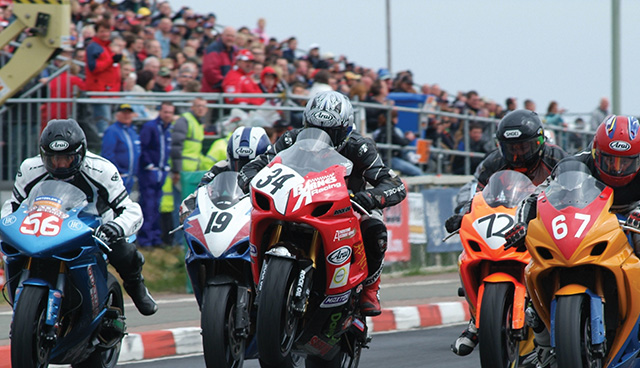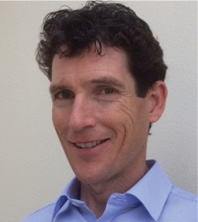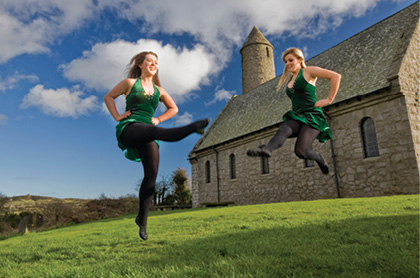Building bridges to boost event tourism

Adrian Devine from the Department of Hospitality and Tourism Management at Ulster University outlines that while Northern Ireland has been successful in drawing major international events in recent years, the potential of homegrown events and the importance of domestic event tourism should not be overlooked.
 The tourism potential of major international events is one of the main economic reasons why governments around the world are so keen to support them. Events can create ‘product’, enliven a destination, animate static attractions and promise a glimpse into the authentic culture of a place. In doing so, events can entice visitors to extend their stay and spend more money at the destination.
The tourism potential of major international events is one of the main economic reasons why governments around the world are so keen to support them. Events can create ‘product’, enliven a destination, animate static attractions and promise a glimpse into the authentic culture of a place. In doing so, events can entice visitors to extend their stay and spend more money at the destination.
In recent years Northern Ireland has successfully tapped into this market reaping the economic rewards from hosting prestigious international events such as the MTV EMA’s (2011) and the Giro d’Italia (2014). With Royal Portrush due to stage the 2019 Open Golf Championship attention will once again be on the international visitor. However, when discussing event tourism there is the temptation to downplay the tourism potential of our homegrown events and the importance of domestic event tourism.
When Derry/Londonderry, a politically and culturally divided city, won the right to host the Fleadh Cheoil one of the strategic objectives adopted by the Fleadh Cheoil na hEireann Executive Committee was to make the 2013 Fleadh inclusive of the entire community in the city. The lead partner in delivering this week-long festival was An Gaelaras, and it formed a strong working relationship with the Londonderry Bands Forum, an organisation set up in 2010 to represent loyalist marching bands in the city. Given that the Fleadh Cheoil was a celebration of ‘Irish’ culture coupled with the fact that the manager of An Gaelaras was a former Sinn Féin Mayor, it was understandable that the members of the Londonderry Bands Forum had mixed feelings about collaborating with An Gaelaras. However, these feelings of scepticism and mistrust gradually began to dissipate as they realised that the Fleadh Cheoil could provide them with a unique opportunity to display positive aspects of their culture.
Admittedly, the first few meetings were ‘heated’ as both parties were encouraged to express their concerns. In the long-term, thrashing out their differences was vital, as it helped to remove some of the ‘political baggage’ that could have later created a deadlock. After these initial meetings, An Gaelaras formed a very strong working relationship with the Londonderry Bands Forum. Significantly, representatives from the PUL (Protestant, Unionist and Loyalist) community were invited to sit on a number of organising subcommittees to help develop the Fleadh Cheoil engagement programme. This ensured that the Bands Forum had an input into the planning, and that they were in a position to address any concerns raised from within the PUL community.
The Troubles had left Derry/Londonderry a segregated city, with the majority of the Protestants leaving the Cityside and moving across the River Foyle to the Waterside. During the planning stages it was agreed that in order to make Fleadh Cheoil 2013 inclusive it would have to be physically staged in both sides of the city. Accordingly, venues were located in both the Waterside and the Cityside. Perhaps even more significantly, four loyalist bands took part in the official programme, including a performance on one of the main stages at Ebrington Square. This proved to be more than a ‘symbolic gesture’ as it served to open up the city encouraging residents from both communities to move around parts of the city that were traditionally perceived to be closed off to them. The Manager of An Gaelaras, for example, told of extensive anecdotal evidence showing how bands’ performances encouraged people from PUL communities to socialise in CRN (Catholic, Republican and Nationalist) districts of the city. For some residents this meant revisiting parts of their city lost to them for decades because of conflict.

Another important intervention taken by the Fleadh Cheoil organising committee was to place restrictions on the flying of flags in order to make this a festival for ‘everyone’. While this may have seemed a rather draconian measure, the organisers were aware that certain flags would have been off-putting and intimidating to members of the PUL community. Pre-emptive measures like this were very important in encouraging inclusion and participation from across the different communities in the city. In a divided city like Derry/Londonderry this has added significance because the Fleadh Cheoil allowed people from the CRN and PUL communities to widen their social circles beyond traditional communal barriers and realise that it does not always have to be a case of ‘us and them’ when it comes to cultural events.
From a tourism perspective, this inclusive approach had short-term and long-term positive impacts on the city. Short-term the Fleadh Cheoil exceeded expectations attracting 400,000 visitors and generating £13 million for the local economy. Long-term, because it opened up the city physically and socially, people in the city are now more inclined to enjoy other events together, hence the success of the Burning Man Festival (2014) and continued growth of the Maritime Festival. Thus, for those involved in other events that are associated, or are perceived to be associated with one particular culture valuable lessons can be drawn from the 2013 Fleadh Cheoil. For instance, in a recent report Féile an Phobail urged the Belfast City Council to expand its St Patrick’s Day celebrations into a three-day festival so it could compete with cities such as Dublin and New York.
This would certainly attract more international visitors but making this, and other St Patrick’s Day events around Northern Ireland, even more inclusive would also help boost domestic tourism. However, in a political melting pot like Northern Ireland where the expression of culture is often contentious, this will require event organisers to show strong leadership, take brave decisions, make compromises and be prepared for criticism. Central and local government could help by placing more emphasis on inclusion in event funding applications. The biggest obstacle, however, will be getting the public on board but as the Fleadh Cheoil 2013 showed – if an event is planned properly, anything is possible!






